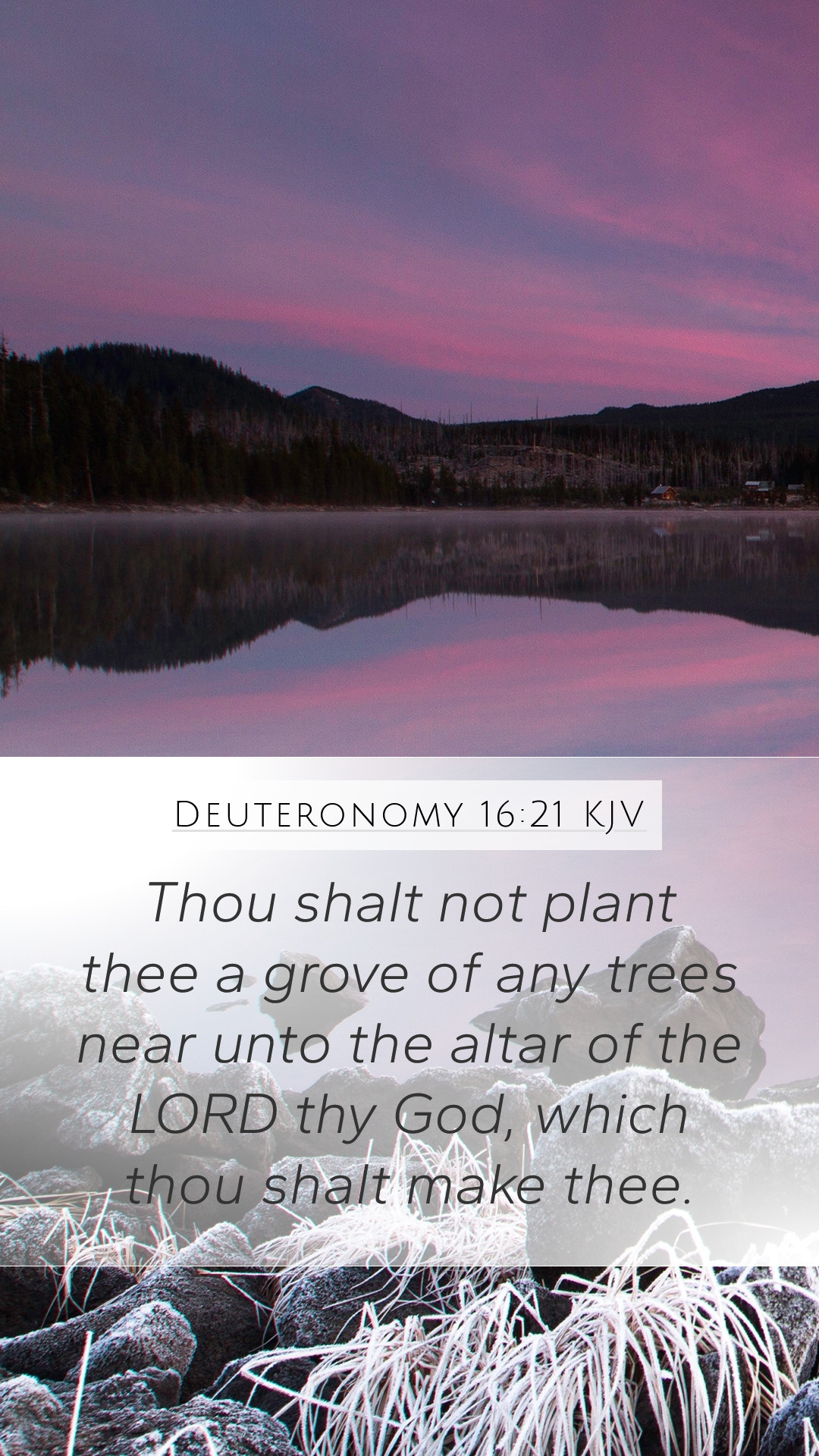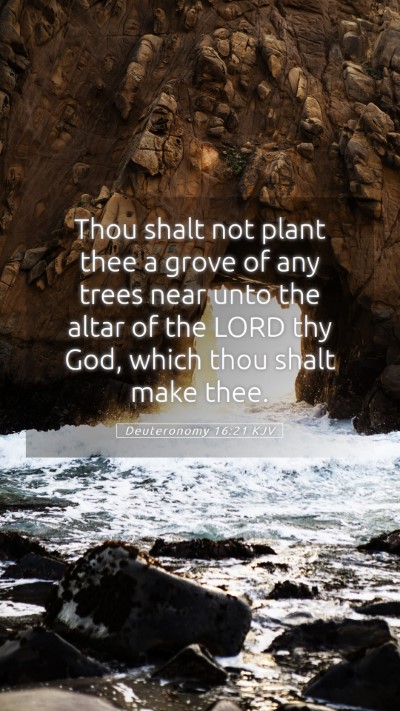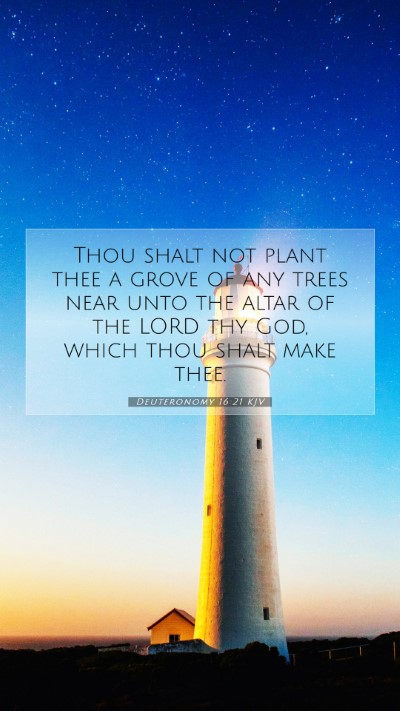Bible Verse Meaning of Deuteronomy 16:21
Deuteronomy 16:21 states, "You shall not plant for yourself any tree, as an Asherah beside the altar of the Lord your God that you shall make for yourself." This verse emphasizes the importance of maintaining purity in worship and devotion to God. In the context of ancient Israel, it serves as a stern warning against idolatry and the incorporation of pagan practices into the worship of Yahweh.
Understanding the Historical Context
The Israelites were entering the Promised Land, a place filled with cultural influences and practices that were often contrary to their covenant with God. As Matthew Henry notes, the prohibition against planting trees associated with Asherah, a Canaanite goddess, highlights the need to stay focused on the worship of the one true God.
Interpretation Insights from Commentaries
- Matthew Henry:
Henry discusses how the Lord’s people must keep their worship clean from idolatry. The mention of planting trees is symbolic of setting up altars and sacrificing to false gods, which is strictly forbidden.
- Albert Barnes:
Barnes emphasizes that the commandment strives to protect the Israelites from the false practices of their neighbors. Cultivating forbidden items beside God’s altar signifies a blending of worship that God abhors.
- Adam Clarke:
Clarke points out the significance of Asherah in the region and warns against the spiritual dangers of adopting customs from surrounding nations. He highlights that God desires singular devotion, free from distractions that idolatrous symbols represent.
Biblical Exegesis and Application
This verse calls believers to examine their own practices and ensure they are not inadvertently adopting worldly views that conflict with biblical teachings. The essence of the command is relevant not only in ancient times but also in contemporary worship settings, where the purity of devotion is paramount.
Supporting Bible Cross References
- Exodus 34:13 - The command to destroy pagan altars.
- Leviticus 26:1 - Prohibition against idol worship.
- Deuteronomy 12:3 - The instruction to destroy places of idolatry.
Conclusion: Application of Deuteronomy 16:21 in Today’s Faith
For modern believers, the lessons of Deuteronomy 16:21 interact with the intent of scripture analysis and Bible study lessons. Understanding the purity required in one’s spiritual life enables individuals to live in accordance with biblical principles and to avoid the pitfalls of idolatry, which can take many forms today.
As you study this verse, consider how each commentary aligns with the broader understanding of God’s call for exclusive devotion and the avoidance of compromise in faith. This brings us to a deeper understanding of Scripture and enriches our biblical study insights, guiding how we interpret and apply these timeless truths in our lives.


